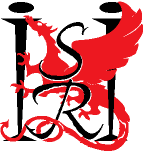
Institute for Software Research International
School of Computer Science, Carnegie Mellon University
Ineffective Organizational Practices at NASA:
A Dynamic Network Analysis
Craig Schreiber, Kathleen M. Carley
February 2005
Center for Computational Analysis of Social and Organizational Systems
CASOS Technical Report
Organizational problems such as ineffective leadership, structural integration,
communication barriers and practical drift have plagued NASA for many
years. The concurrent existence and micro/macro nature of these problems
makes analysis difficult. This whitepaper describes dynamic network analysis
and how it can be applied to study ineffective organizational practices at
NASA. Dynamic network analysis is a comprehensive methodology that can be
used to model complex organizational problems. The methodology can handle
multi-mode, multi-link networks therefore organizational risk can be modeled
at various levels: team, department, divisional, and organizational. Analysis
is done at several levels thus allowing for complex reasoning about the
micro and macro co-evolution of the socio-technical system.
Next, an example model of NASA's Team X is developed and analyzed. The model explores the implications of individual leadership style on structural integration. Results show that leadership style can effect structural integration within the team; an effect that has both team adaptive and performance implications. Modeling and analysis can be expanded to study other current organizational problems at NASA such as communication barriers and practical drift.
14 pages
Return to:
SCS Technical Report Collection This page maintained by reports@cs.cmu.edu
School of Computer Science homepage